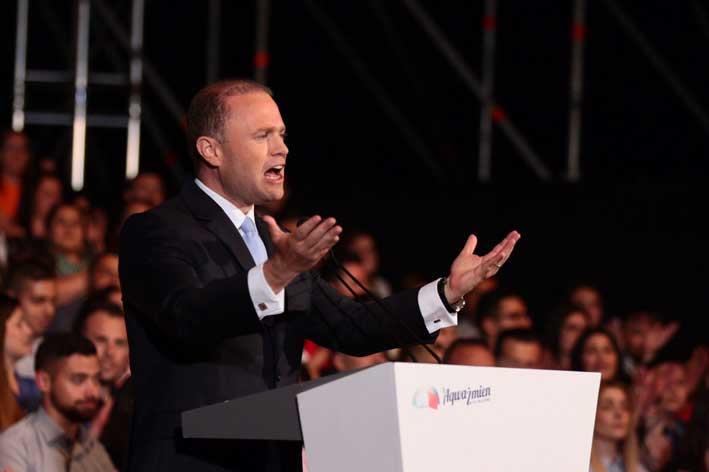An overwhelming majority of respondents said that they have followed the election campaign on television, according to the last election iSurvey by The Malta Independent on Sunday.
Respondents were simply asked: On which medium do you follow the election campaign? Overall, 76.9 per cent went to TV, 53.2 per cent said social media, 27.2 per cent said radio, 18.8 per cent said newspapers, 17 per cent said news portals and 5.1 per cent said they did not know.
The reason why the percentages exceed 100 is because respondents had the option of choosing more than one medium, as is the case with everyday life.
As technology progresses, social media and the internet take on more importance from election to election. During the month-long campaign for yesterday’s snap election, the leaders of the main political parties stepped up their social media presence, with ‘Facebook live’ spots being aired many times a day. All the candidates used online resources in order to get their identity, message, ideas and criticism across.
It is interesting to note that, in the age 18-24 category, 72.4 per cent said they had followed the campaign via television, despite youngsters being more technology savvy and dependent than their older counterparts. This is less puzzling bearing in mind that respondents were able to choose more than one option, illustrated by the 84 per cent of those aged 18-24 who said they also followed the campaign via social media.

What is not so surprising is that 92.6 per cent of the oldest age group – those aged 65+ – said they followed the election on television, and 23.1 per cent said they used social media.
When cross-referencing the results, it was found that individuals who leaned towards the PL were more likely to follow the campaign on television, whereas those inclined towards the PN were more likely to follow the campaign online than their PL counterparts.
In all three categories, those who voted PL in 2013, those who say they will be voting PL now and those who trust Prime Minister Joseph Muscat more than Opposition Leader Simon Busuttil, are all more likely to follow the campaign on television than PN followers.
A majority – 65.5 per cent – of those who said they didn’t know how they were going to vote in yesterday’s election followed the campaign on social media.
Respondents were also asked to choose which websites/social-media platforms they use to obtain information about the election. As was the case with the previous question, respondents were allowed to choose more than one option.

The top choice was Facebook, with 86.2 per cent of mentions, followed by newspaper websites such as independent.com.mt at 24.1%, news portals such as tvm.com.mt, the PBS news portal at 21.6 per cent, political websites at 14.2 per cent, blogs at 11.7 per cent, Twitter at 5.6 per cent, ‘don’t knows’ at 0.8 per cent, Instagram at 0.5 per cent and lastly Google ads at 0.4 per cent.
Malta is notorious for over-using Facebook in particular, so it was therefore no surprise that this was the top choice of respondents. In fact, 95.4 per cent of those aged 18-24 said they get information from Facebook, while 65.4 per cent of those aged 65+ and follow news online also chose Facebook.
Of respondents who obtain electoral information online, the age group which does so through blogs, such as Daphne Caruana Galizia’s or Glenn Bedingfield’s, are those aged 35-44, at 16.3 per cent.
It is interesting to note that from that same category, the respondents who get information online that registered the least interest in blogs, is the youngest age group – those aged between 18 and 24. This could be an indication that the younger generation is breaking the trend of giving increasing importance to such blogs, but only time will tell whether this will be a persistent pattern.
PL voters from all categories, ie those who voted PL in 2013, those who say they will be voting PL in this election and those who trust Dr Muscat over Dr Busuttil are more likely to get information from Facebook.
PN followers from the same three categories, on the other hand, are more likely to get information from newspaper websites and news portals than their PL counterparts.
This survey was commissioned to Business Leaders Malta on behalf of The Malta Independent on Sunday. A sample of 500 respondents was used, representative of age, gender and spread of locality. The margin of error with such a sample size is +/- 5 per cent, when factoring in the confidence interval.